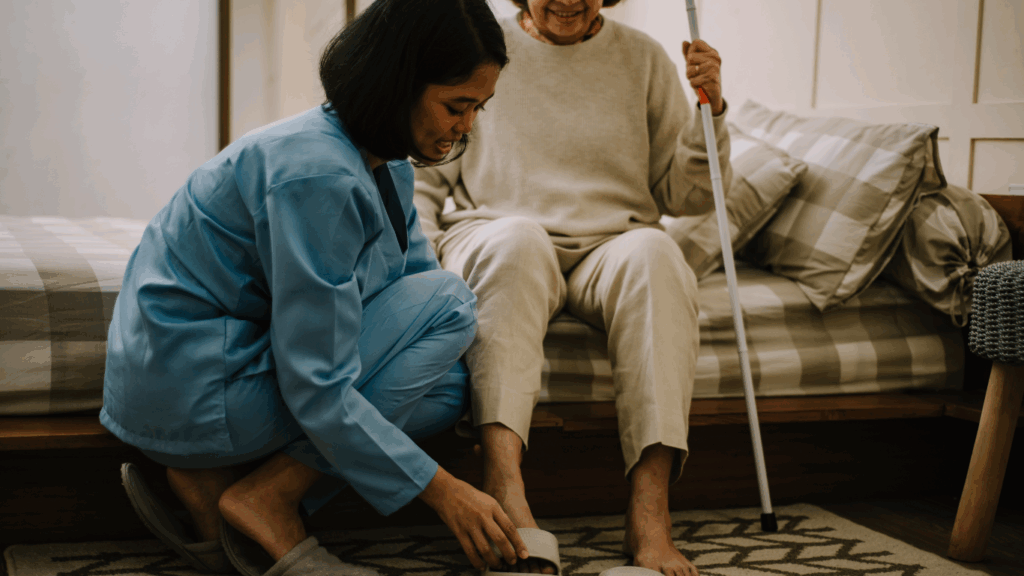When my grandmother fell ill, we turned to home care services for help. She was a proud Punjabi woman who had strong beliefs, traditions, and dietary practices rooted deeply in her culture. At first, we tried an agency that didn’t seem to understand her needs. It left her feeling disconnected and, honestly, invisible. Everything changed when we found a culturally sensitive caregiver who didn’t just provide home care, but treated her with respect, patience, and understanding. That’s when I realized—cultural sensitivity isn’t optional in caregiving. It’s the heart of it.
What is Cultural Sensitivity in Home Care Services?
Cultural sensitivity in home care services means more than speaking the same language. It’s about acknowledging a person’s background, beliefs, and preferences in a way that respects their identity. This includes:
-
Religious practices
-
Food habits and restrictions
-
Family dynamics
-
Gender roles
-
Language and communication style
A truly sensitive home care agency integrates these aspects into their care plans, making the person feel seen and valued—not just cared for physically, but emotionally too.
Why Cultural Sensitivity Matters in Home Caregiving
According to the World Health Organization, culturally appropriate care leads to higher patient satisfaction and better health outcomes. For elders, this can mean lower stress, greater trust in caregivers, and even a faster recovery process.
When caregivers ignore culture:
-
Elders may feel isolated or disrespected
-
Important rituals or dietary needs may be overlooked
-
Communication can break down, leading to medical errors
But when home care services prioritize culture, trust flourishes. The home becomes a sanctuary, not a battlefield.
Real Examples of Cultural Sensitivity in Action
💬 Language Connection: When our caregiver began speaking to my grandmother in Punjabi, it instantly changed everything. Her eyes lit up. She laughed again. That simple act made a world of difference.
🍛 Respecting Dietary Practices: Many Indian elders follow vegetarian diets, or avoid certain foods on religious days. At VCare@Home, caregivers are trained to honor these dietary guidelines.
🧘🏾 Honoring Spiritual Needs: For many, daily prayers or rituals are non-negotiable. Recognizing these as essential, not optional, is a mark of true respect.
The Role of Home Care Agencies
Not all home care agencies are created equal. A culturally sensitive agency recruits and trains caregivers to:
-
Adapt their care styles to diverse backgrounds
-
Communicate respectfully and effectively
-
Recognize signs of discomfort related to cultural boundaries
-
Engage in continuous learning about local traditions and practices
If you are in Chandigarh, Mohali, or Zirakpur and searching for home care services on Google, you’ll find many options. But my favorite is VCare@Home because of their compassionate and professional care.
Why I Trust VCare@Home
When we called VCare@Home, we weren’t just looking for someone to bathe or feed my nani—we wanted someone who understood her. And that’s exactly what we got.
VCare@Home
📍 C-6, 3rd Floor, Sebiz Infotech Square, Sector 67, Sahibzada Ajit Singh Nagar, Punjab 160062
📞 078229 66966
They offer deeply personalized home care services that go beyond checklists. Their staff listens, adapts, and most importantly—respects.
Cultural Competency in Training Programs
VCare@Home invests in workshops and in-house training sessions that focus on cultural intelligence. These programs ensure that every caregiver knows how to:
-
Ask the right questions
-
Listen with empathy
-
Adjust care routines based on cultural preferences
It’s not just a job for them—it’s a mission to serve with dignity.
Conclusion
Caregiving is not just about tending to the body—it’s about honoring the soul. Culturally sensitive home care services recognize that each elder carries a lifetime of traditions, values, and stories. When we respect that, we don’t just provide care—we offer healing. Whether you’re a caregiver or a family member looking for the right home care agency, remember that cultural understanding isn’t an extra—it’s essential. And if you’re in Chandigarh, Mohali, or Zirakpur, VCare@Home is a name you can trust to deliver care that truly connects.
FAQs: Cultural Sensitivity in Home Caregiving
-
What does cultural sensitivity mean in home care?
It means respecting the patient’s cultural beliefs, language, food preferences, and traditions in caregiving. -
Why is cultural sensitivity important in home care services?
It builds trust, improves emotional well-being, and leads to better care outcomes. -
How do home care agencies train for cultural sensitivity?
Through workshops, language support, and real-life case-based training. -
Does VCare@Home offer culturally sensitive services?
Yes, they are known for personalized and respectful home care services. -
What if my elderly parent doesn’t speak English?
Agencies like VCare@Home provide caregivers who speak local languages. -
Can I request a caregiver from a specific cultural background?
Yes, many home care providers try to match caregivers based on cultural compatibility. -
Are dietary restrictions considered in home care?
Absolutely. Culturally sensitive care includes meal planning based on dietary traditions. -
Is religious practice supported in caregiving routines?
Yes, spiritual needs are often respected and supported. -
Can cultural insensitivity harm a patient’s mental health?
Yes, feeling misunderstood or disrespected can lead to anxiety and withdrawal. -
How can I check if an agency values cultural sensitivity?
Ask about their training, staff diversity, and client feedback. -
Is cultural sensitivity a legal requirement?
While not always legally enforced, it’s a best practice in ethical caregiving. -
Do all caregivers receive the same training?
Top agencies like VCare@Home offer uniform cultural competence training. -
What if my family has unique traditions?
Share them with your caregiver—good agencies will adapt care accordingly. -
How can cultural barriers in caregiving be overcome?
Through open communication, empathy, and professional guidance. -
Where can I find culturally sensitive home care in Chandigarh?
Try VCare@Home, a highly trusted provider in Chandigarh, Mohali, and Zirakpur.






